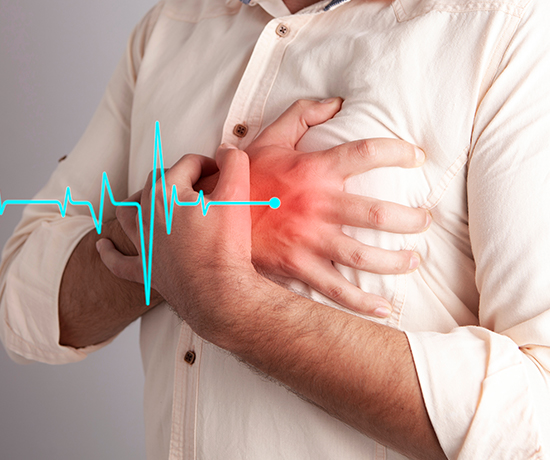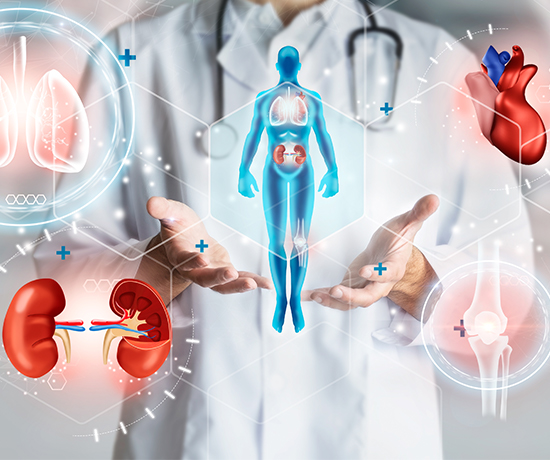Left-sided heart failure
The left side of your heart works harder when you have left-sided heart failure. A healthy left ventricle’s ejection fraction is above 60%. An ejection fraction or EF is the percentage of blood pumped by the heart with every beat. Left-sided heart failure is further categorised as:
- Systolic failure occurs when the left ventricle is unable to contract normally, thus inhibiting its ability to pump the required amount of blood for circulation. Systolic failure is also known as Heart Failure with Reduced Ejection or HFrEF. During systolic failure, the heart’s pumping ability is equal to or less than 40% EF.
- Diastolic failure happens when the muscles in the left ventricle become stiff and hamper their ability to relax normally. During a diastolic failure, the heart does not fill up with blood properly while it rests between each beat, and the EF is equal to or greater than 50%. Another term for diastolic failure is Heart Failure with Preserved Ejection or HFpEF.
Right-sided heart failure
Right ventricular heart failure usually results from left-sided heart failure. When this happens, the fluid pressure is routed back through the lungs, eventually damaging the heart’s right side. Once damaged, the right side loses its ability to pump blood and causes the blood to back up in your veins.
Congestive heart failure
CHF, or Congestive Heart Failure or heart failure, is a medical condition requiring immediate attention. Congestion occurs in the body tissues when the blood flows out of the heart and slows down, causing the blood returning towards the heart in the veins to back up. This congestion manifests as oedema in the ankles, legs, and other body parts. Sometimes it may result in pulmonary oedema, where the fluid collects inside the lungs and obstructs your breathing, especially when lying down. Unless treated immediately, pulmonary oedema can cause respiratory distress.
In other cases, heart failure impacts kidney function, obstructing it from properly eliminating water and sodium and leading to excessive blood volume. This excessive fluid can also add to water retention in your body.


